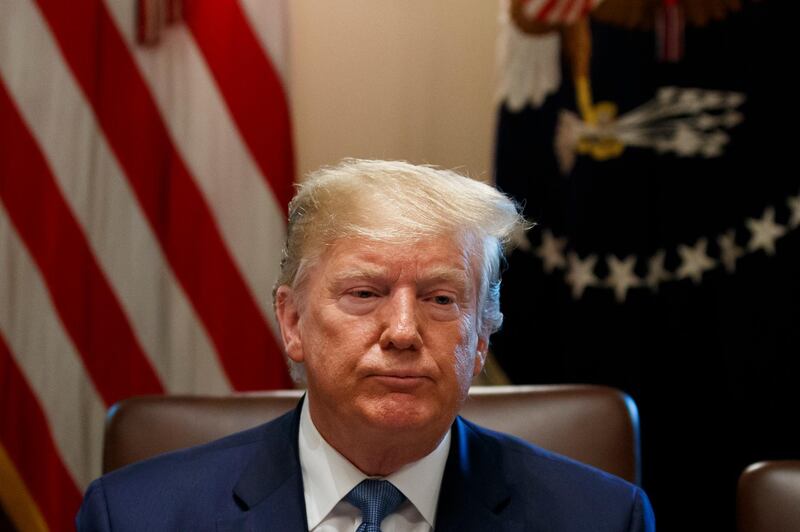A resolution condemning US President Donald Trump’s racially charged attacks on four Democratic congresswomen was passed by the House of Representatives on Tuesday.
Outrage sparked by Mr Trump’s Sunday tweets in which he told the group of congresswomen to “go back and help fix the totally broken and crime-infested places from which they came” has diverted attention from all other business in Washington.
All four politicians are US citizens and three of them were born in America.
A relatively small group of Republicans have spoken out against Mr Trump’s tweets about Alexandria Ocasio-Cortez of New York, Ilhan Omar of Minnesota, Ayanna Pressley of Massachusetts and Rashida Tlaib of Michigan.
The Democrats have a majority in the House but four Republicans – Will Hurd, Fred Upton, Ryan Fitzpatrick and Susan Brooks – voted in support of the resolution, along with former party member Justin Amash.
“These comments from the White House are disgraceful and disgusting, and these comments are racist,” Speaker Nancy Pelosi said on the floor of the House earlier on Tuesday.
Ms Pelosi’s speech sparked a two-hour debate on the floor after Republicans claimed she broke the rules by describing the president as racist.
Democrat House majority leader Steny Hoyer eventually ruled that Ms Pelosi had gone too far.
Mr Trump and Republican leaders cancelled a late-afternoon meeting as the drama wore on.
Republican leadership recommended members vote against the resolution, which says the House “strongly condemns President Donald Trump’s racist comments that have legitimised and increased fear and hatred of new Americans and people of colour”.
“It’s all politics,” House Republican leader Kevin McCarthy said later.
Mr Trump retweeted Mr McCarthy’s comments and thanked him.
The president has a history of what critics consider race-baiting.
He falsely claimed his predecessor Barack Obama was not born in the US and said after a deadly, white supremacist rally in Charlottesville, Virginia, that there were “very fine people on both sides”.
On Tuesday, Senate Republican leader Mitch McConnell said he thought “everybody ought to tone down their rhetoric” and focus on issues, but stopped short of condemning Mr Trump’s remarks.
“The president is not a racist and I think the tone of all of this is not good for the country, but it’s coming from all different ideological points of view,” Mr McConnell said.
Mr Trump’s attacks on the four progressive congresswomen, known as “the squad”, have been viewed as an effort to divide the Democrats, who won control of the House of Representatives in 2018 and have the power to thwart his legislative agenda.
At his rallies he has often talked about proposals from the progressive wing of the Democratic Party, which he calls extreme, as he seeks to energise his political base and attract moderate voters before the November 2020 presidential elections.
Mr Trump has also sought to highlight divides within the House Democratic caucus, where leaders have struggled to work with the progressive newcomers.
Earlier on Tuesday, Mr Trump had warned Republicans not to vote against him.
“Those tweets were not racist. I don’t have a racist bone in my body,” he said on Twitter.
“The so-called vote to be taken is a Democrat con game. Republicans should not show ‘weakness’ and fall into their trap.”
In response, Ms Ocasio-Cortez tweeted: “You’re right, Mr President, you don’t have a racist bone in your body. You have a racist mind in your head and a racist heart in your chest.”
You’re right, Mr. President - you don’t have a racist bone in your body.
— Alexandria Ocasio-Cortez (@AOC) July 16, 2019
You have a racist mind in your head, and a racist heart in your chest.
That’s why you violate the rights of children and tell the Congresswoman who represents your home borough, to “go back to my country.” https://t.co/adlCUO7r0v
Reuters contributed to this article.







